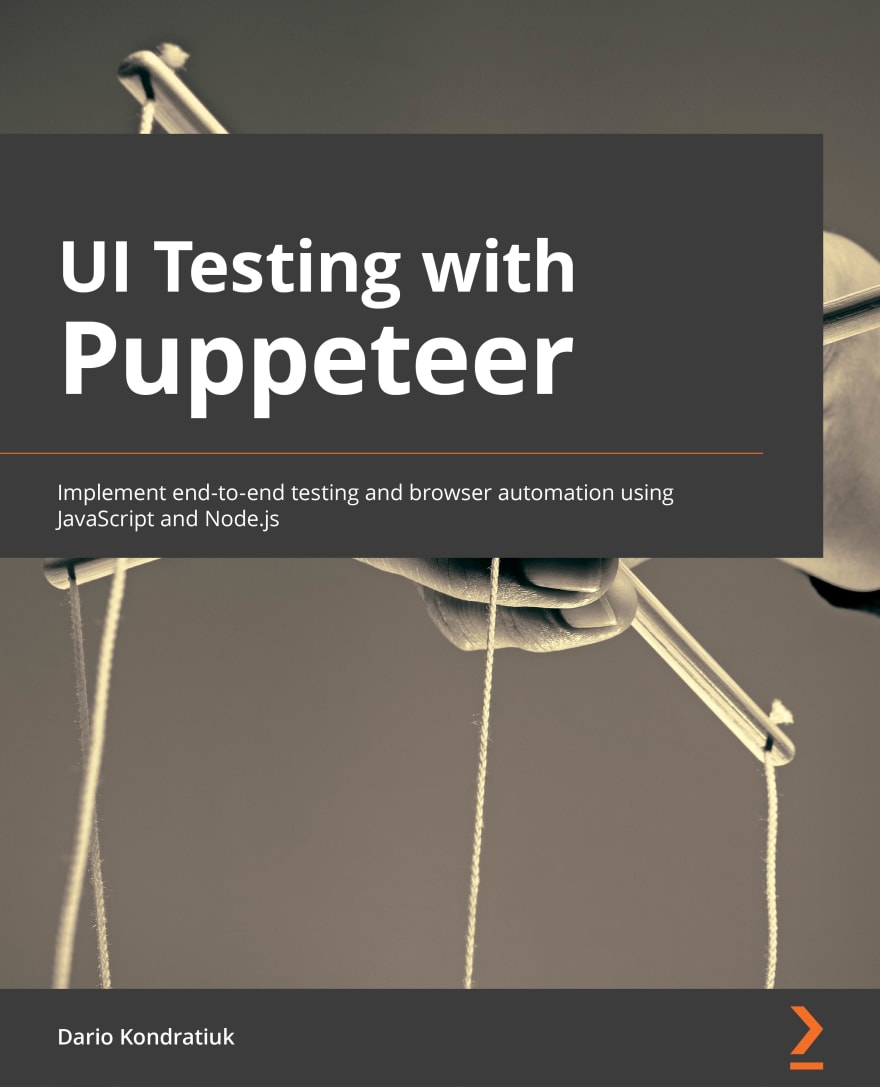I'm so thrilled to announce that my book UI testing with Puppeteer has been published!
You can find it on Amazon.com and PacktPub.com. You will find all the details on the book website. Special Thanks to Facundo Giuliani for helping me set up a Jamstack website in a few hours.
Why writing a book?
When Kaustubh Manglurkar from PacktPub reached me out asking me if I wanted to write a book, I didn't know what to say. I wasn't (and I don't consider myself) a writer. But Kaustubh told me something that turned my doubts into an absolute yes. He told me that there was no book about Puppeteer in the market.
That put extra pressure on the project. If I was going to write the first book about Puppeteer, it should cover most of the Puppeteer API.
I can make a connection with TV shows like House or Grey's Anatomy, where every chapter has its own plot, but there is an underlying story going on. The same happens with this book. Each chapter covers a topic, but the underlying story is the Puppeteer API.
What you will find in the book
This book will help you get started not only with Puppeteer but also with UI testing. Each chapter begins with the basic concepts before getting into the code. You will learn about automated testing in general. You will learn what test runners are and what you should expect from them.
In Chapter 4, where you will learn to interact with the page, but you will also learn about CSS selectors and XPath. You will even see a little bit about JavaScript closures in Chapter 7. Chapter 8 is about environments emulation, but I open the chapter talking about the internet ecosystem.
This book is also for web developers!!
In chapter 2, I talk about how web developers can use web automation as part of their workflow to test their UI components. In Chapter 7, We see how to generate content with Puppeteer. Then in chapter 9, I talk about web scraping and scraping ethics. The last chapter is about performance, which is something we should all care about.
Filling your toolbox
This book will give you more than a complete picture of API and UI testing. Many chapters include a bonus track, where you will learn about a tool that will be helpful in your automation journey.
These are the tools you will see in this book:
- Github Actions.
- VS Code debugging tools.
- Checkly.
- Checkly's headless recorder.
- Google Lighthouse.
- Puppeteer-Cluster.
Special thanks
It would be impossible to mention all the people involved in this project. I would miss many for sure. But I want to thank all the PacktPub crew, in special Kaustubh Manglurkar, for making all this possible and my editor Sofi Rogers who basically taught me to write, not just a book, to write :). You are the best Sofi!
The job of the technical reviewers was impressive! David Rubio Vidal and Jim Munro took the book to the next level.
Last but not least, thanks to my family and friends who supported me all these months. I love you all.
Final words
Maybe you are wondering, "but Dario, how about .NET? How about Playwright? weren't you working on Playwright?'" Well, if you are interested on seeing this book on .NET or Playwright, don't hesitate to send an email to PacktPub!
One final and personal thought. One thing I learned in this process is that writing a book is hard!!, really hard. It's easy to be mean on social media for many of us when we don't like something, and sometimes we forget to be thankful, even if we paid for the book we read.
To all tech authors around: thank you for your hard work!







Top comments (2)
Congrats!
Thank you!